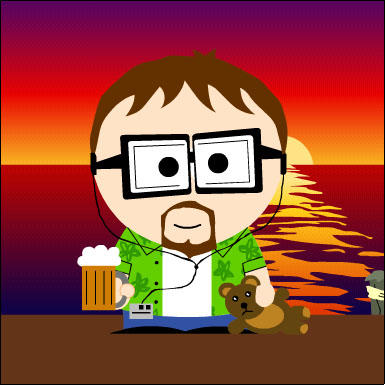Amusing Ourselves to Death, whose subtitle is "Public Discourse in the Age of Show Business," was originally published back in 1985. Initially when I put the book on my Amazon wish list, from whence my dad did his Christmas shopping this year about two days before I cleaned it up and added a bunch of stuff, I had no idea it had been written over two decades ago. As I read the forward to the book, which I have reproduced below, I was chilled:
We were keeping our eye on 1984. When the year came and the prophecy didn't, thoughtful Americans sang softly in praise of themselves. The roots of liberal democracy had held. Wherever else the terror had happened, we, at least, had not been visited by Orwellian nightmares.
But we had forgotten that alongside Orwell's dark vision, there was another - slightly older, slightly less well known, equally chilling: Aldus Huxley's Brave New World. Contrary to common belief even among the educated, Huxley and Orwell did not prophesy the same thing. Orwell warns that we will be overcome by an externally imposed oppression. But in Huxley's vision, no Big Brother is required to deprive people of their autonomy, maturity and history. As he saw it, people will come to love their oppression, to adore the technologies that undo their capacities to think.
What Orwell feared were those who would ban books. What Huxley feared was that there would be no reason to ban a book, for there would be no one who wanted to read one. Orwell feared those who would deprive us of information. Huxley feared those who would give us so much that we would be reduced to passivity and egoism. Orwell feared that the truth would be concealed from us. Huxley feared the truth would be drowned in a sea of irrelevance. Orwell feared we would become a captive culture, preoccupied with some equivalent of the feelies, the orgy porgy, and the centrifugal bumblepuppy. As Huxley remarked in Brave New World Revisited, the civil libertarians and rationalists who are ever on the alert to oppose tyranny "failed to take into account man's almost infinite appetite for distractions." In 1984, Huxley added, people are controlled by inflicting pain.
In Brave New World, they are controlled by inflicting pleasure. In short, Orwell feared that what we hate will ruin us. Huxley feared that what we love will ruin us.
This book is about the possibility that Huxley, not Orwell, was right.
As a consumer of HUGE quantities of media from books to movies to television, in fact Countdown with Keith Olbermann is on in the background as I write this, I find this line of reasoning rather chilling even if it goes along with something I have been thinking for some time. In essence I have felt, and may have complained about it on this blog, that for some time the public discourse in America had become painfully shrill, quite frankly was no longer civil. Of course as an alpha consumer of media I am complicit in the very thing which I decry, however I think the need to feed the 24 hour news cycle combined with the blurring of the lines between news and entertainment and the fact that the media treats consumers as though they have the attention span of a gnat has had a very negative effect on our public discourse. I am interested to see what Mister Postman has to say about this and even more interested to see what his take on it was while CNN and Headline News, then called CNN2, were still in their infancy.
Just thought I would let you guys know where my head is at in case there is a rash of meditations on modern media that end up being posted here over the next little while. I would also encourage EVERYONE out there to check this book out, despite only being about 20 pages in. I think Mr. Postman's voice and ideas are important for those of us living in the media circus world in which we live.
* This book continues my habit of buying books which consist of little more than blog posts dressed up to go to the Prom. Part of this stems from the slim hope that karmic payback might be in the offing and I can score a publishing deal at some point for all these random rantings of mine (I know I won't, but I can dream, can't I?) however the majority of the reason I continue to buy books which contain things I have already read for free on the internet is because these guys can just plain WRITE. Of particular interest in this volume is the nine-part series "Me and My Shadow" which, in the space of around 70 pages, chronicles Kevin's experiences with Jason Mewes' drug addiction. Check it out.
** This is a lie.

1 comment:
Glad to hear you enjoyed Homemade Hollywood. :)
Post a Comment